Test Bank for Ethical, Legal, and Professional Issues in Counseling, 6th Edition, Theodore P. Remley, ISBN-10: 0135183812, ISBN-13: 9780135183816
$35.00
Test Bank for Ethical, Legal, and Professional Issues in Counseling, 6th Edition, Theodore P. Remley, ISBN-10: 0135183812, ISBN-13: 9780135183816
Test Bank for Ethical, Legal, and Professional Issues in Counseling, 6th Edition, Theodore P. Remley, Barbara P. Herlihy, ISBN-10: 0135183812, ISBN-13: 9780135183816
Table of Contents
Foreword iv
Mock Licensure Board Ethics Hearing 1
Guidelines for Using Instructor’s Manual 10
Chapter 1 Introduction 12
Chapter 2 Professional Identity of Counselors 16
Chapter 3 Multiculturalism, Values, Social Justice, and Advocacy 20
Chapter 4 Client Rights and Counselor Responsibilities 24
Chapter 5 Confidentiality and Privileged Communication 28
Chapter 6 Records and Subpoenas 33
Chapter 7 Competence, Assessment, and Diagnosis 36
Chapter 8 Malpractice and Resolving Legal and Ethical Challenges 41
Chapter 9 Boundary Issues 46
Chapter 10 Technology in Counseling 50
Chapter 11 Counseling Children and Vulnerable Adults 54
Chapter 12 Counseling Families and Groups 58
Chapter 13 Professional Relationships, Private Practice, and Health Care Plans 62
Chapter 14 Issues in Counselor Education 66
Chapter 15 Supervision and Consultation 71
Chapter 16 Professional Writing, Conducting Research, and Publishing 76
Multiple Choice Questions 79
Answers to Multiple Choice Questions 135
MULTIPLE CHOICE QUESTIONS
Chapter 1
Introduction
- Law and ethics differ from one another in that:
- laws dictate minimum standards of behavior that society will tolerate, whereas ethics represent the ideal standards expected by the profession.
- ethics dictate minimum standards of behavior that society will tolerate, whereas laws represent the ideal standards expected by the profession.
- ethics and laws have the same standards.
- laws require that counselors always follow the profession’s ethical standards.
- ethics and laws are often in conflict because they are so different from one another.
- The best statement about the nature of professional ethics in counseling is that:
- if counselors study ethical codes and keep current with the professional literature, they can be assured of practicing in an ethical manner.
- in order to practice in an ethical manner, counselors must always be in compliance with federal and state laws.
- because there are few absolute right answers to ethical practice questions, consultation with counseling colleagues is very important when making ethical decisions.
- because there are few absolute right answers to ethical practice questions, consultation with lawyers is very important when making ethical decisions.
- the ethical standards have changed very little in the last 50 years, so if counselors learn the rules, they will be able to practice in an ethical manner.
- The personal values of counselors:
- have no place in the counseling session.
- should be completely altruistic.
- are influenced by their families of origin and their cultures, among other factors.
- are rooted in universal moral principles.
- should prevail over ethics when there is a conflict between the counselor’s values and the client’s behavior.
- From the perspective of principle ethics, a counselor who is counseling a client planning a violent act against another person, and who intervenes to notify the client’s family members is:
- sacrificing client autonomy in order to prevent harm and to do good.
- sacrificing fidelity in order to be truthful.
- sacrificing justice in order to be faithful to promises made.
- sacrificing veracity in order to protect the client’s anonymity.
- sacrificing beneficence in order to promote fidelity.
- While principle ethics asks the question “What should I do?,” virtue ethics asks the question:
- “What would an ethical counselor do?”
- “What should counselors who want the follow the law do?”
- “Who should I be?”
- “Who am I?”
- “What does virtue mean?”
- Virtue ethicists believe that:
- to determine whether a counselor is ethical, each decision the counselor makes must be carefully weighed.
- people exist in connection to and in relationship with one another.
- actions speak louder than words.
- there are no universal moral principles.
- counselors should always be truthful.
- At their most fundamental level, codes of ethics serve to:
- protect and promote the welfare of the client.
- protect and promote the welfare of the counselor.
- protect and promote the welfare of the profession.
- protect and promote the welfare of the counselor’s agency.
- protect and promote the welfare of the client’s family unit.
- Counselors who function according to mandatory ethics:
- believe that employers should require specific behaviors of counselors they hire.
- believe that their duty is to comply with basic “must” and “must not” statements in codes of ethics, and nothing more.
- believe counselors should determine what is ethical based on the specific situations in which they find themselves.
- would favor ethical standards that use the word “should,” instead of the word “must.”
- would favor judging the actions of counselors based on the circumstances, rather than on strict rules.
- When attempting to make an ethical decision, it is recommended that counselors take all of the following steps EXCEPT:
- tune into their feelings.
- involve the client in the decision-making process.
- consider the moral principles.
- consult with an attorney.
- identify desired outcomes.
- Once counselors have disclosed their legal questions to their immediate supervisors, and have received a response either from the supervisor or from an attorney who is advising them as to the proper course of action,
- it is essential for counselors to seek a second opinion.
- it is essential for counselors to choose and act on their own choice.
- it is essential for counselors to follow legal advice given to them, even if they do not agree with it.
- it is essential for counselors to follow legal advice given to them, but only if they agree with it.
- it is essential for counselors to ask the ACA Ethics Committee for an opinion.
- All of the following are situations in which it is necessary to consult with colleagues EXCEPT:
- when counselors face issues that require them to exercise judgment.
- when there are no clear right or wrong answers.
- when deciding whether to respond to a subpoena.
- when it is possible that clinical decisions will be challenged later.
- when they are not certain whether a client might be suicidal.
- Laws:
- always support professional values and behaviors.
- dictate maximum standards of behavior for professionals in a position of trust who provide services to the public.
- are similar to ethics in that they represent ideal standards.
- often conflict with an ethical standard related to a similar issue.
- are agreed upon rules that are set forth by principles allowing people to live together in a society.
- External forces that can support counselors in their efforts to practice ethically include all of the following EXCEPT:
- supervision.
- intentionality.
- consultation.
- codes of ethics.
- continuing education workshops and seminars.
- The ACA Code of Ethics:
- helps to stabilize the profession.
- answers nearly all questions that a counselor might have.
- sets forth ethical responsibilities that never change.
- is the single, universally accepted code of ethics for counselors.
- is updated every two or three years.
- When a counselor discovers that a client holds values that are dramatically different from the counselor’s own values, the counselor should:
- try to gently persuade the client to re-examine his or her values.
- respect the client’s values, even though the counselor disagrees with them.
- immediately refer the client to another counselor.
- give the client some reading material that will broaden his or her perspective.
ask the client how he or she would feel if people discriminated against him or her because of values held.

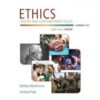

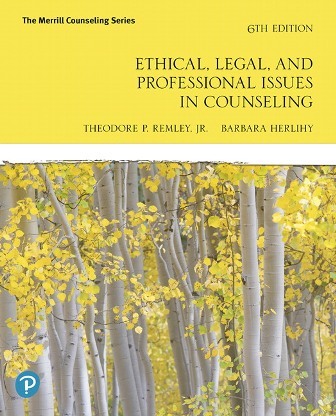
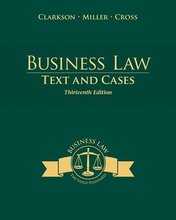

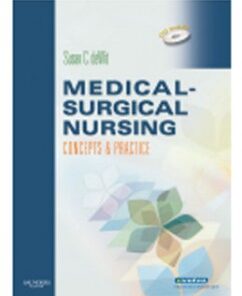


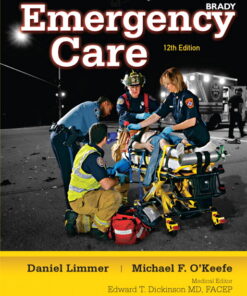


Reviews
There are no reviews yet.